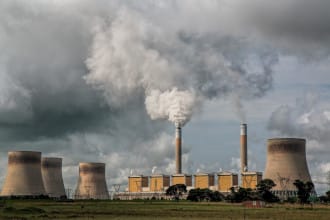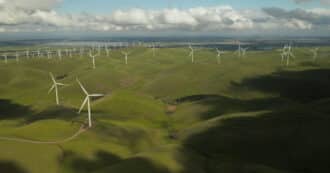By Matthew Mausner –What does it mean to act ethically with respect to the environment? What does it mean to have environmental ethics? These are questions that include many sides and angles of understanding the complex and intertwined set of relationships human society has to ecosystems and the planet as a whole.
It raises issues of how to treat animals, plants, and other humans ethically, in a context in which human civilization has major global effects.
What are Environmental Ethics?
There is a broad set of ideas that interact when we explore this concept. To be ethical in complex situations implies including moral considerations at many levels, some of which may contradict each other. Environmental ethics gives us a rubric to think morally about the implications of our policies, decisions, actions, and even inaction in our impacts on the environment.
Philosophical Aspects of Environmental Ethics
When we talk about the moral relationship of human beings to the environment, there are many factors. There are values that cannot be quantified but are not necessarily consonant with each other. Human populations, above all, seek to keep themselves alive, with concomitant impacts on the environment around them. That consideration often outweighs any given concern about the larger environment or other species, especially in times of stress, drought, or war.
Ethics in Environmental Management
Even hunter-gatherer groups act on this survival value, and modify the environment significantly. Sometimes this takes the form of intentional burning to encourage grassland regrowth and higher game populations and sometimes it is intentional reseeding of preferred trees or plants short of agriculture.
Even if an ethos is embedded in their animist worldviews, there are always trade-offs, and other species that might suffer or lose their habitat. Hunter-gatherers tend to accumulate encyclopedic knowledge about their environment, and have highly sophisticated ways of maintaining their prosperity thereof. However, even such impressive ecological management techniques involve value decisions about which species are favored and which are discouraged.
Human agricultural civilization inevitably generates larger scale environmental problems. Animal welfare fundamentally alters when some animals are domesticated, which also involves an ethical shift in breeding, controlling, and slaughtering captive life.
Agriculture is thus implicitly a moral decision, whereby humans decide what lives and what dies on a given territory. Ethics of ownership of land and animals (and even other humans) often arise with civilization.
Yet unfortunately, such ethical or moral considerations have not often been held as core principles by most of the world’s conquering empires. Philosophers have long noted this anthropocentrism as a significant feature of civilization.
Religious Ethics about The Environment
Philosophies that aspire to integrate an understanding of the whole of human life on earth have each sought, in different ways, to inculcate values of sustainable human existence that have respect for the continuing web of life.
Religions from time immemorial have embedded ethics with a component of ecological awareness. For example, the ‘ahimsa’ respect for all life forms is common to many Indian traditions like Jainism and Buddhism. The ‘Shmita’ or sabbatical year concept in Judaism calls for letting the land lie fallow from continuous cultivation and replenish its nutrients every seventh year.
This is described in greater detail in Eco Bible: Volume One: An Ecological Commentary on Genesis and Exodus. In our times, religious groups are making a concerted effort to apply religious environmental ethics to manifest a sustainable humanity.
As FaithInvest describes, “The world’s major faiths are taking a lead by developing Faith Plans – long-term commitments looking at how they will manage their assets, investments, influence and resources to drive action on climate change, biodiversity and sustainable development over the next seven to ten years. This is already the biggest environmental initiative ever launched by the faiths. Dozens of faith groups have signed up to develop a Plan. The Plan will be launched ahead of the UN’s COP 26 Climate Conference to be held in Glasgow, UK” in November, 2021.
Scientific Ethics
Recent science has been increasingly arriving at and encouraging similar ethical values, even if not articulated as such. For example, scientists studying climate change advise limiting and balancing the massive impacts of our current industrial global consumerist civilization with ethics that ask us to allow the natural world an opportunity to continue to survive alongside us.
Evolutionary biologists, oceanographers, soil scientists, and many other specialties give us ever more insight into the scope of human impacts on the environment, and on the vulnerability of species to the human onslaught.
But science does not usually articulate values to make decisions, only facts. For values and moral decisions, we need ecologists, philosophers… and formalized environmental ethics.
Evaluating Tradeoffs Ethically
Every decision we make collectively with respect to the global environment has tradeoffs. Depending on our level of analysis and the moral and ethical values we seek to balance, there are always various considerations to a given practice, even while it might appear on the surface as an intrinsic value.
Environmental Ethics in Wealthy Countries
When we look at today’s civilization as a whole, it might appear on the surface that advanced industrial nations are responsible for most pollution and use of resources that threaten the global environment.
However, the economic growth and high standards of living and education of wealthy countries are positively correlated with environmental awareness, consciousness, and desire for policymaking to reflect environmental ethics as a value.
Environmental Ethics in Developing Countries
By contrast, poor countries often have a far smaller pollution and carbon footprint per person. However, their runaway population growth and subsistence living situations mean that they have much bigger impacts in other ways. For example, they are more likely to use inefficient wood and charcoal and coal for fuel, causing deforestation and degradation.
Also, burgeoning populations pose a significant long-term burden to the sustaining capacity of the environment, by contrast to the steady or declining populations of many wealthier countries.
By some measures, the best and most cost-effective way to reduce impacts and increase sustainability in the longer term is to rapidly raise the standards of living of developing nations, as higher prosperity and education both raise standards of living, lower birth rates, and increase environmental consciousness as the population can focus on things other than survival.
The Ethics of Power Production
Another place where we see these sort of moral balancing acts is in power generation. Even the ‘cleanest’ types of energy have potential downsides to the environment. Solar energy requires industrial manufacturing of panels and cells, using relatively rare chemicals and minerals that must be mined, sometimes leaving scars on the landscape.
Wind energy can impact birds and insects. By some measures nuclear energy may be the most efficient and least impactful, but that assumes future generations will continue to maintain it responsibly and ensure a minimum of nuclear waste. Yet for right now, fossil fuels like oil produce by far the most efficient energy for effort, and its byproducts are reused in a wide range of industrial and consumer ways.
Every energy decision contains possible tradeoffs in pollution, efficiency, long and short term considerations, and arguments about how society itself should be shaped. A perspective that values direct protection of the environment today, and also sees the significance of human prosperity to the longer term interdependence of humans and the environment, is impossible without environmental ethics and philosophy.
Our political leaders and ethicists rarely have all of the scientific and spiritual and practical expertise necessary to see the whole picture. Society as a whole, with help from many different angles, is responsible for our sustainability as a species on this planet.
* Featured image source








